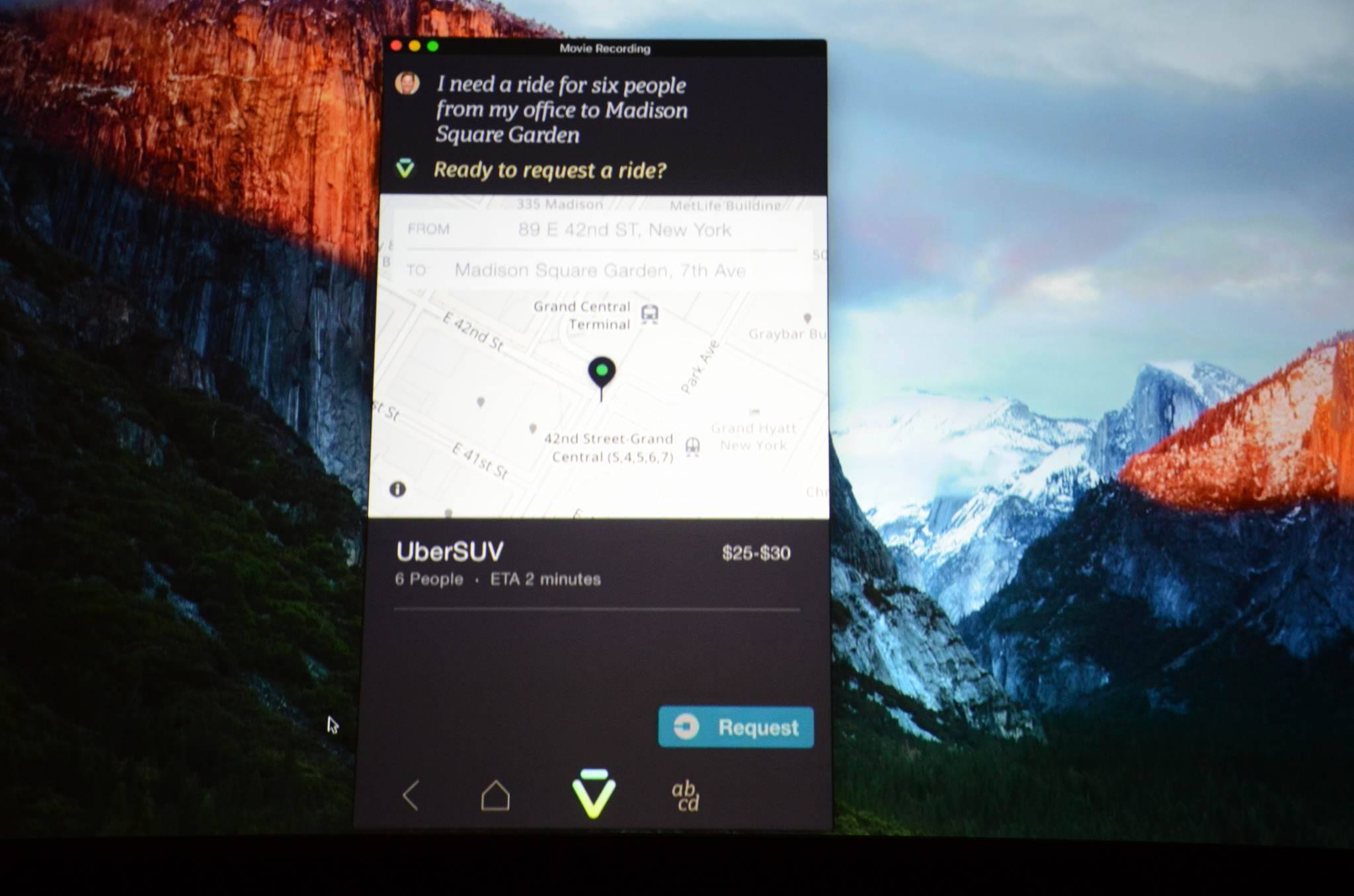Thanks to the number of third-party products and services integrated into it, Viv is more similar to SoundHound’s Hound and Amazon’s Alexa, than it is to Siri or Google Now. The assistant can tell you the weather, call an Uber, send money to a friend — all through a natural conversational input style.
Related: There’s an iPhone for everyone, find your match here
“Our kids will grow up asking, how did you ever get along without your assistant.”
Demoing the app at TechCrunch Disrupt in Brooklyn, New York, Kittlaus asked Viv, “was it raining in Seattle three days ago?” The assistant connected to Weather Underground to provide relevant results.
“Will it be warmer than 70 degrees near the Golden Gate Bridge, after 5 p.m., the day after tomorrow?” Kittlaus asked Viv. “No,” Viv answered, “it won’t be that warm on Wednesday after 5 p.m.” Kittlaus said Viv’s voice capabilities were still in the works, so he couldn’t demo that element at the convention.
Kittlaus then went on to buy flowers for his mother, send money to Viv Labs co-founder Adam Cheyer, and book a hotel room — all within the span of two minutes and solely in the Viv app. It worked quite flawlessly in part because the company has partnered with more than 50 companies, including GrubHub and Uber, to integrate their products and services into the assistant.
“Imagine when you’ve got hundreds and thousands of developers plugging in new services, and are able to [achieve] the efficiency of using conversation in commerce like this,” he said.
Kittlaus believes there’s going to be a new icon on all devices that will be instantly recognizable as Bluetooth and Wi-Fi, and that’s Viv’s icon.
Viv, which means “life,” will launch toward the end of 2016. The company will work with select partners as the launch date draws near, and then the platform will open up to any developer who wants to integrate their service.
Kittlaus and Cheyer sold Siri to Apple, and then went on to work for the Cupertino company for a short period, before quitting. Apple turned Siri into a more closed system, which wasn’t the original idea that Kittlaus and Cheyer had for voice assistants.
“Our kids will grow up asking, how did you ever get along without your assistant; the same way when I was in college — my kids are incredulous that I didn’t have a computer,” Kittlaus said.
Now, to book a hotel on mobile you typically have to download a specific app, learn how it works, enter all your details, find what you want and then make a booking. Viv wants to simplify that process through conversation and one platform.
Asked whether Viv will bypass services like Google search entirely — Kittlaus said the more capable Viv becomes through third-party services and products, the less you want to go back to doing things the old way.
“I don’t think search is going to disappear, but I think the rise of the assistants is inevitable,” he said.




